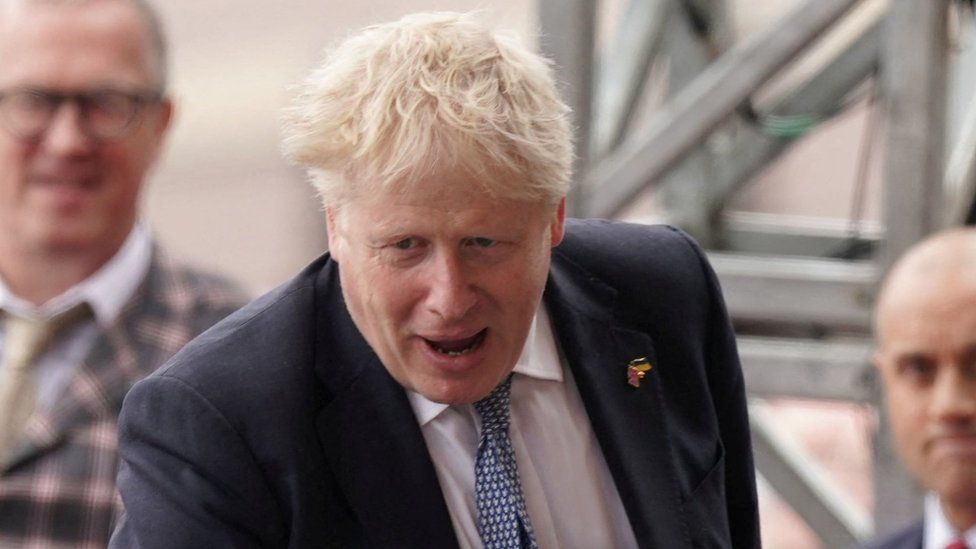Numbered Days
Boris Johnson’s apparent belief that rules don’t apply to him will likely spell the end of his tenure as prime minister.

by Theodore Dalrymple
It is ironic that Ukraine president Volodymyr Zelensky’s staunchest ally in the West, Boris Johnson—who has just narrowly survived a no-confidence vote—may wind up losing power before Vladimir Putin does. What is more, he probably deserves to do so, which is not quite the same thing as saying that a better alternative exists.
Johnson not only broke the rules about social isolation during the Covid-19 pandemic that his government imposed on Great Britain—who can forget the picture of the Queen obeying them for the funeral of her husband of more than 70 years?— but has since consistently tried to wriggle out of any real admission of guilt. If he had proved himself competent or trustworthy in anything else, he might have been forgiven, but he is now regarded by practically everyone, of whatever political stripe, as a man of no known principle except that of achieving and clinging to power.
The official report into what is commonly called Partygate—the holding of social events in Number 10 Downing Street during the various lockdowns—is widely believed to have been watered down, but even so, it paints a depressing picture of the upper echelons of government, apart from any wrongdoing by the prime minister himself, whose main fault was to countenance the social events.
If a world history of orgies is ever written, what went on in Number 10 will not merit even a footnote. It makes depressing reading: our corrupt nomenklatura can’t even enjoy itself properly. It all seemed mainly a matter of takeaway pizza and wine drunk out of plastic cups.
More depressing still is that some members of the nomenklatura behaved in a fashion not terribly different from that of the drinkers on a Saturday night in the Red Lion, a pub of ill repute just around the corner from where I write. The Saturday night drinkers scream, shout, fight, and vomit: just like some of their supposed betters, the ruling class in Downing Street.
Johnson behaved as if he belonged to a class to which rules did not apply, even when he made them himself. Rules are for bumpkins, such as Queen Elizabeth, not for the likes of him. This mentality—always attractive to the powerful or self-important—is quite widespread.
Opposite my house, for example, is a church surrounded by a large area of grass. The tombstones have long since been removed from the churchyard as a supposed hazard to public safety. It is obvious that it is not an area for parking, yet one man persists in doing so in his very expensive car. When confronted about it, he says that he has done a lot for the church, restoring and preserving it, and is therefore entitled to park there, unlike anyone else.
This is the Boris Johnson approach to rules. It will probably bring him down, even if his infringement of the rules was hardly the crime of the century. In politics, symbolism is important.
First published in City Journal.